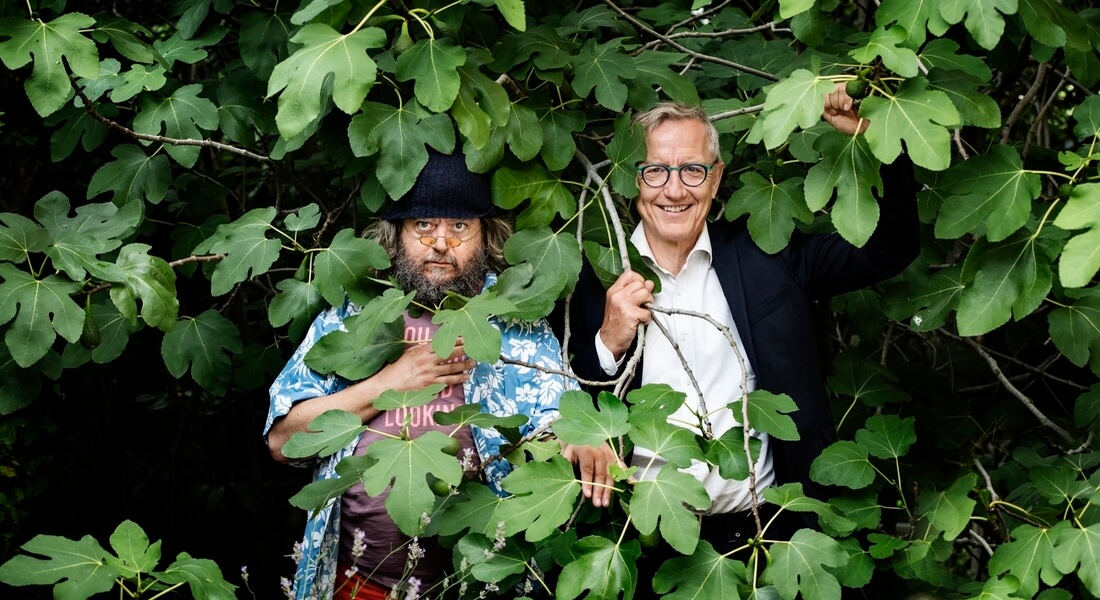Plants unite! The Plant Manifesto giving a voice to a silent life form
If humans depended on photosynthesis, we would be plants too. Professor Michael Broberg Palmgren and Anders Lund Madsen talk about their new book about why we should respect our chlorophyllic comrades.

They produce the oxygen we breathe. We descend from the same organism. They have more genes than we do. They produce their own food. They have senses, they move and they communicate with each other.
Plants are a highly advanced life form. Yet somehow, we see them as our subordinates. We step on them, molest them, kill them and devour them.
It is about time that humans show plants some respect. That’s why we need the Plant Manifesto, according to the authors Michael Broberg Palmgren, professor in plant physiology in the Department of Plant and Environmental Science at University of Copenhagen, and Anders Lund Madsen, a journalist, writer and host of numerous radio and TV shows.
“It’s a simple message: respect the plants,” said Palmgren.
“If visitors from another planet came to our planet and witnessed how we treat plants, they would say goodness!” Madsen added.
A lecture seeded the idea
It all began when Madsen attended one of Palmgren’s lectures. It was the first time he heard anyone speak about plants in such an angry and indignant manner. The professor was clearly frustrated with how humanity treated plants. He then invited the professor on his radio show to list the 40 coolest plants in the world. The result was a series of conversations that became the basis for the book.
More than once the professor shocked Madsen with his insights.
“It was like a spiritual awakening. The realisation that you are not that important in the great scheme of things,” Madsen said.
“Plants are more complex, more sophisticated more elegant and more evolved than us. Their lives are more complicated than ours are, and I already find our lives to be extremely complicated.”
Weeds have more genes than humans
First time Palmgren saw the light was in 2000. It was the first time that researchers were able to sequence a plant genome. The plant was Arabidopsis thaliana, commonly known as thale cress. It has 27.000 genes. In 2003, the Human Genome Project sequenced and mapped all of the genes of humans. We only have 19.000 genes, meaning that it takes 8,000 more genes to build an unassuming weed that grows on sidewalks than it takes to build a human.
“It turned out that the tiny thale cress had more genes than us. Researchers have tried to make all sorts of explanations. Some said that the plant had doubled its genome, so that it just had more of the same genes. It’s just an excuse. More genes simply give plants more material to work with,” Palmgren said.
If humans survived on sunlight
A recurring argument for the inferiority of plants is the fact that plants have no brain or central nervous system. In fact, that is what makes them so advanced. As long as you stay rooted in one place and survive on sunlight, being able to run away from dangers does not improve your chances of survival.
“You become a plant if you live by photosynthesis,” Palmgren said.
“This may sound banal, but it’s profound. If humans had to live by photosynthesis, we would become plants too. Form and function are tightly coupled. Plants are an advanced life form like us, even when it comes to being able to sense their surroundings. They look the way they look, because they live the way they live. They don’t have a nervous system, because they are plants and have roots.”
Seeing the world in a new light
Madsen said that the conversations with Palmgren changed the way he sees plants, even the world. Nothing less. The book is their attempt to invite readers to share their fascination with plants. Working with the book changed Palmgren in some ways too. He has learned to share his knowledge with a broader audience.
“Anders asks brilliant questions,” he said.
“He’s enthusiastic, knowledgeable and intelligent. What I said to him was what I meant. In a way, one of the first things you learn at university is a new language, but no one outside the university speaks it. In fact, you don’t really need it when talking about science. Popular science does not have to be dumbed down. Sometimes you can just replace scientific terms with your own words.”
It also helps if a researcher is confident that what they are saying is something that other people will find exciting, Madsen added.
“You could listen to the world’s top astronomer and still be entirely uninterested in what they’re saying if they don’t show confidence in their research. That is one of Mickey’s strengths. He believes in his research. That is what makes someone interesting.”
The “Plant Manifesto – defending a silent life form” was published on Gyldendal on 28 October.
Contact
Andreas Berg Jakobsen
Communications officer
E-mail: abja@plen.ku.dk
Tlf.: +45 35 33 31 76
